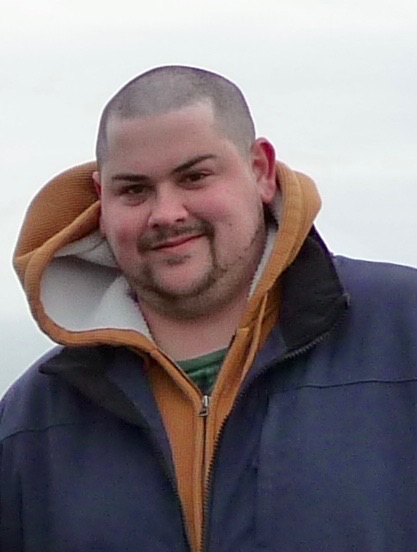
Grieving Father Honors Son Through Outreach Organization
By Luke Schmaltz, VOICES Newsletter Editor
For the past seven years, John Lally has grappled with grief in the aftermath of his son’s death from a heroin overdose.
Lally’s grief journey is underscored by the irony that, despite being a nurse practitioner with over three decades of experience in psychopharmacology and psychotherapy, he was unable to prevent Tim’s death.
In memory of his son, Lally founded Today I Matter (TIM), a nonprofit dedicated to reducing the stigma and shame associated with mental illness and substance use disorder (SUD). TIM is also committed to promoting physical, emotional, and mental health. Lally and his fellow volunteers strive to educate others in how to recognize, prevent, and treat mental health issues and SUD.
Lally speaks candidly about coping with loss, finding community, and taking care of oneself while shouldering the long-term burden of grief.
Long-Term Issues
“Tim had been struggling with different issues for about 10 or 12 years,” Lally begins. “He died just five days before his 30th birthday, but it all started late in high school. He had severe depression, anxiety, and panic attacks that were so bad he had trouble getting out of bed some mornings. He would cry, shake, and say, ‘I can’t manage this, I can’t do this.’”
“We tried the typical mental health therapies, medications, and treatments but nothing seemed to help him,” Lally continues. “He struggled a lot until one day, someone at work gave him a Percocet and he said, ‘It was the first time I felt calm again. It was the first time I felt I could cope with the world.’ He loved the feeling. I can imagine, after all his struggles, why it felt so good.”
Repeating Patterns
Lally explains how Tim attempted recovery through several treatment programs, but the relief was short lived. “When his head was clear, he really liked it, but after a while it would sneak up on him again. Eventually he went from snorting heroin to using it intravenously. We finally got him into another program, and he was doing well and living in a sober house.”
“Unbeknownst to us, he was thrown out because he relapsed. He didn’t tell us because he was too embarrassed and ashamed. He was staying in the basement of a drug dealer that he knew. We got a phone call that he was in cardiac arrest after a heroin overdose. We went to see him in the hospital, and he was on a ventilator, but he never regained consciousness or was able to breathe on his own. They did a CAT scan and found that he had Catastrophic Brain Anoxia. He was brain dead, and our family had to make the horrible decision to take him off the ventilator and let him go.”
The date was January 21, 2016 – the beginning of Lally’s trek through the fog, confusion, and guilt of his grief. “That was the worst day of my life,” he says. “But unfortunately, there was no better option. My brother met us there and I remember saying to him, ‘I don’t know how to do this, Mike.’”
Finding Purpose in Pain
“Once the news got out about Tim, I started getting more clients who had lost a loved one or who had a loved one who was struggling with substance use,” Lally says. “I talked with my wife, my other son, and a brother of mine and we decided to start a nonprofit organization in Tim’s name so we could help people who are struggling. In coming up with a name, I wanted to keep Tim close to my heart with an acronym. So, I decided on Today I Matter. At first it was just a clever use of his name, but it has really grown into so much more than that.”
Ongoing Support
TIM supports a variety of community events, including a monthly support group for adults who have lost a sibling to substance use. During the pandemic, the group switched to meeting on Zoom. “We are going to keep it that way because now we have people from around the country – places like Seattle, Texas, Indiana, and Washington D.C.,” Lally says, who facilitates the group utilizing his training as a certified grief counselor. “I’ve done other groups, mostly for parents who’ve lost a child, but we had a lot of requests for siblings and it’s a different kind of loss. It’s a different type of process you have to go through.”
While he knows he is helping others, Lally notes that it is important to be self-aware when doing outreach and public speaking events. “Sometimes it is like tearing the scab off and making it fresh again,” he begins. “But it gets easier the more I do it. When I get feedback from people about how it has helped them on their journey, with their response to their grief, in their relationships, and in their thoughts about their relative or friend who died from substance use – it reinvigorates me to know we are doing the right thing. When I hear this is helpful, then my pain was worth it.”
“Realizing my goal of making something positive from my son’s death helps me a lot. There are positive things happening and that makes me feel good in a way I think Tim would be proud of.”

Powerful Commemoration
Today I Matter is best known for the Poster Project, a commemoration of over 620 individuals from 39 states. TIM prints large portrait-style posters of people who have died from substance use and displays them at events in Rhode Island, Philadelphia, Vermont, and Washington D.C.
“Images are provided by the families,” Lally begins. “At the bottom of the photo, we list their name, the town they are from, and two traits that describe them as a person. We want to describe them and make them come alive; nowhere does it say ‘addict’ because they were so much more than that. This is one of the main ways we are trying to break the stigma, because you look at these posters and you see these beautiful smiling faces. It is not a memorial to their death. We want to remember their lives and portray them as vibrant human beings. This is the way they deserve to be remembered.”
Taking the First Steps
Drawing from personal experience, Lally offers key advice for anyone who has recently lost a loved one to substance use. In the beginning, just keep breathing,” he says. “Get out of bed, you may feel like you don’t want to, be just get up and do something – move a muscle. That helps a little bit. It is like climbing Mount Everest – it is just putting one foot in front of the other.”
“Also, try to find people you can be around who are open to talking to you, or just listening to you sometimes is more important. If you can find someone who will just sit with you, you don’t have to feel alone. Some people do need to get professional help,” he says, noting that anyone who has thoughts of ending their life must get help right away.
“The feelings get less intense and less frequent over time, but they can still overcome you at any moment. Sometimes I just don’t know where it’s coming from. Sometimes I do know, it may be my son’s birthday or the anniversary of his death. It can blindside you, so just know that…you just have to roll with it. Time doesn’t make it go away. We don’t get over it, we learn how to live with it.”
